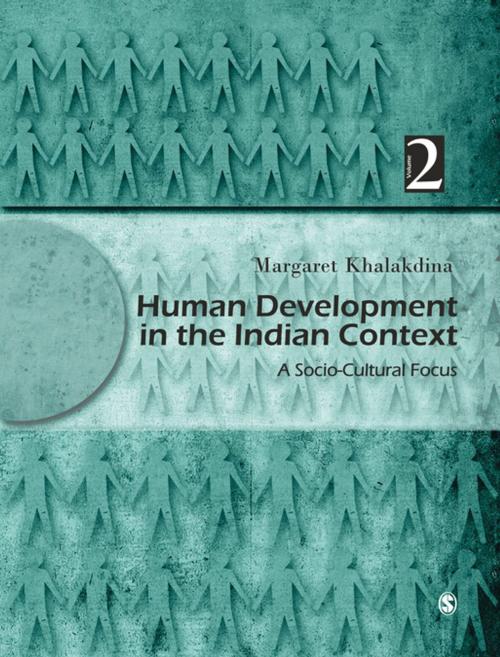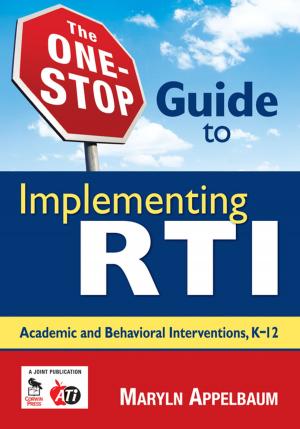Human Development in the Indian Context, Volume II
A Socio-Cultural Focus
Nonfiction, Reference & Language, Education & Teaching, Study Skills, Health & Well Being, Psychology, Applied Psychology| Author: | Margaret Khalakdina | ISBN: | 9788132119241 |
| Publisher: | SAGE Publications | Publication: | July 12, 2011 |
| Imprint: | Sage Publications Pvt. Ltd | Language: | English |
| Author: | Margaret Khalakdina |
| ISBN: | 9788132119241 |
| Publisher: | SAGE Publications |
| Publication: | July 12, 2011 |
| Imprint: | Sage Publications Pvt. Ltd |
| Language: | English |
This book is the sequel to Human Development in the Indian Context: A Socio-cultural Focus, Volume 1. A contextual complement to its prequel, this volume presents the major socio-psychological and cultural influences on the development of an Indian. This volume analyses development of person from childhood to adolescence in the Indian context.
The author incorporates psychological, sociological, anthropological and even economic and socio-political dimensions that affect development, giving the work multi-disciplinary breadth. It has a futuristic perspective and focuses academic attention on social reality frames as well as on indigenized constructs, attempting to analyze through empirical data the development theories relevant to the Indian subject.
While most books on the subject are based on Western patterns and examples, which are vastly different from the Indian setting, this book is context-specific and content-sensitive to the Indian psyche. It culminates its discussions with identifying the future foci that could give empirical information for creating a theoretical base on the development of the Indian.
This book is the sequel to Human Development in the Indian Context: A Socio-cultural Focus, Volume 1. A contextual complement to its prequel, this volume presents the major socio-psychological and cultural influences on the development of an Indian. This volume analyses development of person from childhood to adolescence in the Indian context.
The author incorporates psychological, sociological, anthropological and even economic and socio-political dimensions that affect development, giving the work multi-disciplinary breadth. It has a futuristic perspective and focuses academic attention on social reality frames as well as on indigenized constructs, attempting to analyze through empirical data the development theories relevant to the Indian subject.
While most books on the subject are based on Western patterns and examples, which are vastly different from the Indian setting, this book is context-specific and content-sensitive to the Indian psyche. It culminates its discussions with identifying the future foci that could give empirical information for creating a theoretical base on the development of the Indian.















